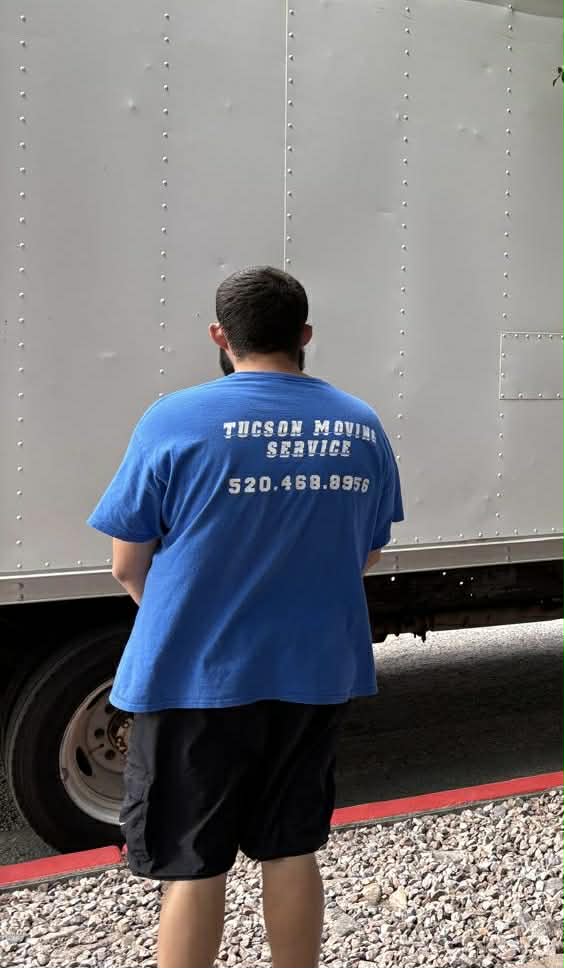Choosing a moving company can be as intricate as selecting a fine wine; there’s a lot to consider beyond the price tag. You’re not just looking for a team to haul your belongings from point A to point B. Rather, you’re entrusting your prized possessions, perhaps even family heirlooms, to the care of strangers. It’s crucial to know what to look for, how to compare services, and when to walk away. In the following guide, we’ll equip you with essential knowledge, so you can make an informed decision. But first, why is understanding moving quotes so important?
Understanding Moving Quotes
Deciphering moving quotes might seem like deciphering a foreign language at first, but once you understand the key components, you’ll be able to make an informed decision with ease. It’s crucial to have a detailed quote breakdown, as it can help you grasp what you’re paying for and why.
The first step in decoding estimates is understanding the basics. Moving quotes are usually based on the weight of your belongings, the distance of your move, and any additional services you may need. These additional services could include packing, unpacking, disassembling, and reassembling furniture, or special handling for delicate items.
Next, you’ll want to look at whether your quote is binding or non-binding. A binding quote means that the price you’re quoted is the price you’ll pay, regardless of whether your stuff ends up weighing more or less than estimated. A non-binding quote, on the other hand, means that your final cost could change.
Your quote should also include insurance information. Standard moving insurance, known as Released Value Protection, is often included in your quote. However, it’s worth considering Full Value Protection, which will cover the replacement value of any lost or damaged items.
Decoding estimates isn’t always straightforward, but it’s worth taking the time to understand. By breaking down your quote, you’re ensuring you won’t face any unexpected costs later on. Remember, a cheap quote isn’t always the best quote – it’s about finding a balance between cost and quality. So take your time, ask questions, and make sure you’re fully informed before making a decision.
Evaluating Service Contracts
After fully understanding your moving quote, it’s crucial to turn your attention to the service contract, an essential document that specifies exactly what services the moving company will provide and the terms of their work. This agreement can be a key factor in your decision-making process.
Contract negotiation is a vital part of this stage. Don’t be afraid to negotiate the terms, especially if there are aspects you’re uncomfortable with or don’t fully understand. Legitimate moving companies will be willing to discuss and adjust their contract terms to ensure they meet your needs and expectations. Ask questions, seek clarity, and make sure you’re satisfied with the terms before signing.
One major aspect to scrutinize is the cancellation policy. Cancellation policies can vary significantly from one company to another. Some may offer full refunds if you cancel within a certain timeframe, while others may charge hefty fees. Understanding these policies will help you avoid unexpected costs if your plans change.
Also, determine what’s included in the service. Does the contract cover packing, loading, unloading, and unpacking? Are there extra charges for heavy or oversized items? What about insurance coverage for your belongings? Make sure these details are explicitly stated in the contract.
Checking Company Credentials
Before you seal the deal, it’s crucial to verify the moving company’s credentials, ensuring they’re legitimate and capable of handling your move safely and professionally. The first step in this process is license verification. This involves checking if the company is licensed to operate in your state or across state lines, depending on the nature of your move. Interstate movers must have a U.S. Department of Transportation (USDOT) number, a unique license provided by the Federal Motor Carrier Safety Administration (FMCSA). You can verify this online using the FMCSA’s database.
Similarly, for moves within a state, companies should have a state license. Each state has its regulations, so make sure you’re familiar with yours. Never hire a moving company that can’t or won’t provide you with their license information; it’s a red flag that they may not be reputable.
Embark on an accreditation assessment. This typically means checking if the company is a member of recognized moving organizations such as the American Moving and Storage Association (AMSA) or the Better Business Bureau (BBB). Accreditation gives a company credibility, showing that it adheres to certain standards and ethical practices. A moving company doesn’t need to have accreditation, but it’s a good indication of their commitment to quality service.
Navigating Insurance Options
When choosing a moving company, it’s essential to understand your insurance options to protect your belongings during the move. Insurance coverage varies among companies, so you should be proactive in asking questions and ensuring you’re adequately covered.
The first aspect you need to consider is policy coverage. Not all policies are created equal, and you must understand what’s covered under each option. Some policies may only cover your items if they’re damaged in transit, while others might protect them throughout the entire moving process, including packing and unpacking. In some cases, the policy might only cover a portion of the item’s worth, known as “released value” coverage. Conversely, “full value” coverage ensures the full replacement cost of items.
The second aspect to consider is the claim process. Should something unfortunate happen, you’ll want a straightforward and efficient claims process. It’s crucial to ask how claims are handled, the typical turnaround time, and if there are any specific requirements you need to meet to make a valid claim.
Spotting Red Flags
While understanding insurance options is crucial, it’s equally important to be aware of potential red flags that could signal a less-than-reliable moving company. In the realm of scam prevention, knowledge is your best defense.
One major red flag is an unusually low estimate. If a price seems too good to be true, it probably is. Some disreputable companies may offer a low quote to secure your business, only to increase the price later. Always get quotes from multiple services and beware of outliers.
Pay attention to how a company communicates. Unprofessional behavior, such as a lack of clear communication or tardy responses, can indicate a lack of commitment to customer service. If a company can’t be bothered to respond promptly or answer your questions fully, they might not be trustworthy.
A lack of physical address or a frequently changing business name can also be warning signs. Reliable companies will have a stable, traceable business location and consistent branding.
Be wary of companies that demand large deposits before moving. While it’s standard practice to require some payment upfront, asking for full payment in advance is a potential scam.
Always verify a company’s credentials. Trustworthy movers will have a valid Department of Transportation number and positive reviews online.
Trust your gut. If something feels off, it might be best to search for a different mover. Your peace of mind is worth the extra effort in choosing the right service.
Choosing the right moving company is akin to finding the perfect dance partner. They need to move in sync with your needs, and be reliable and trustworthy. Be smart— understand your quotes, scrutinize contracts, verify credentials, explore insurance options, and beware of any red flags. The right partner will make the dance of relocation a smooth waltz rather than a chaotic jitterbug. Remember, you’re leading this dance, so make your choice count.



